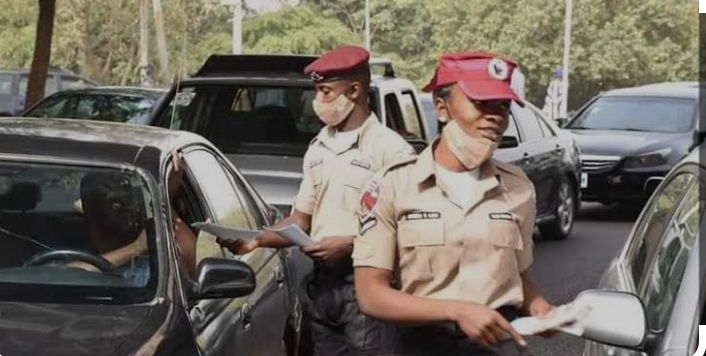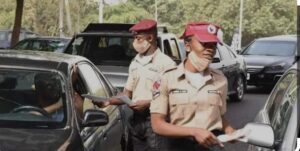FRSC Introduces New Mandatory Requirements for Vehicle Owners
The Federal Road Safety Commission (FRSC) is legally authorized to conduct routine checks on all vehicles traveling major routes in Nigeria.
According to Section 19 of the FRSC (Establishment) Act 2007, the Commission can stop vehicles to ensure they meet legal requirements.
The law states that “personnel of the commission, who are exposed to high risk in the enforcement of the provisions of this act, shall have the same powers, authorities, and privileges, including the power to bear arms.”
Car owners in Nigeria must carry several essential documents and items as mandated by the FRSC.
These include:
Driving License: Issued by the FRSC, it authorizes a person to drive and shows the driver has been tested and certified.
Proof of Ownership: Indicates the title or right to possess and use the vehicle.
Insurance Certificate: Provides information on the specific insurance coverage for the vehicle.
Certificate of Roadworthiness: Issued after vehicle inspection officers certify that the vehicle is roadworthy and its major parts are functional.
Vehicle License: Issued for a specific vehicle, valid for one year.
C-Caution Sign: A reflective warning sign indicating potential danger or obstacles.
Fire Extinguisher: A portable device that discharges water, foam, gas, or other materials.
Other required items include ensuring tires have valid expiry dates, carrying extra tires, a razor blade, a torchlight, hydraulic fluid, and an extra fan belt.
Recently, a popular blog reported that the FRSC has flagged some imported vehicles as dangerous due to faulty programming.
Notably, the agency has warned Nigerians against using certain models of the widely used Lexus vehicles.
This announcement was made by Bisi Kazeem, the FRSC’s public education officer.



